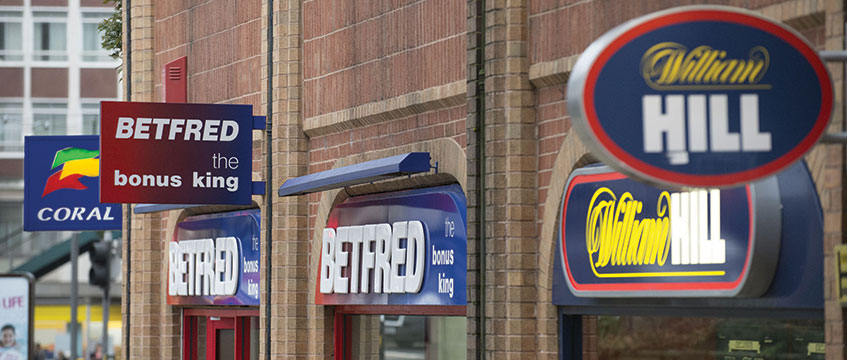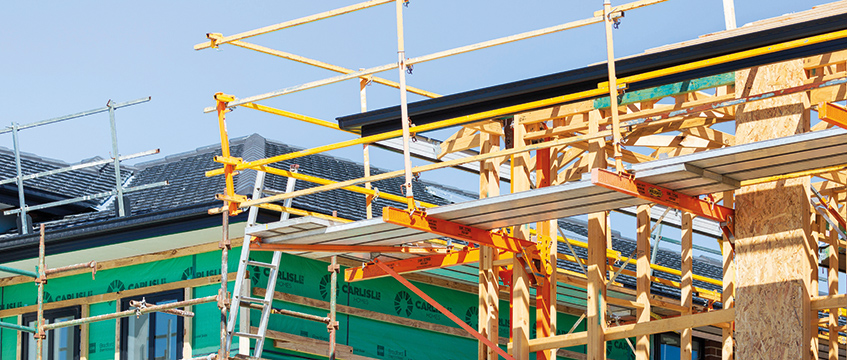The government’s proposed crackdown on fixed-odds betting terminals could result in as many as 3,000 of the UK’s 9,000 betting shops closing, according to industry experts.
Gamblers can bet up to £100 per spin every 20 seconds on games on the controversial machines. This means that gamblers can lose – and betting shops can earn – as much as £300 a minute. However, the government is consulting on bringing the maximum bet down to only £2, a move that will dramatically hit the profitability of betting shops. Many betting shops have come to rely on the machines in order to be profitable.
Matthew Hopkinson, director at DataIntel, says: “There are nearly 9,000 betting shops out there which now have higher costs of occupation, like any retailer.
“If they were to cut the numbers, it would be fair to say we could lose around a quarter or a third of betting shops, or 2,000-3,000. Given that there are two to three shops in each major town, that’s fairly significant.”
The Department for Culture, Media and Sport is in charge of legislation for betting machines, with the final decision due in July at the latest.
Trade body the Association of British Bookmakers has similarly warned that if ministers take the option to cut the stakes it would lead to thousands of shop closures, as well as being a huge blow to the racing community through lost levies and media rights payments.
Who would be affected?
The property investors and landlords with the most exposure to betting shops are private investors and individuals, many of whom bought them through the auction house, enticed by their strong covenants and as an easy route into commercial property investment.
The majority of betting shops are on the high street, but they can also be found in shopping centres, retail parks and transport hubs.
Consolidation among bookmakers in recent years means it is still common to have several betting shops in one town centre. Redhill, Surrey, for example, is home to a William Hill and Betfred on the same road, as well as a Coral bookmakers on the High Street.
The government’s cap on allowing only four FOBT machines per bookmaker has also prompted their expansion within the same areas.
Simon Morris, head of agency, GCW, said: “The amount of consolidation means there are towns and locations with a single brand operator in multiple sites across the town centre where the perception is that the reason for keeping them open is the fixed-odds machines, not the provision of traditional bookmaking services.”
According to LDC data (see box), the combined Ladbrokes Coral business has the largest number of high-street betting shops, with 1,367 shops on the high street. Paddy Power, which merged with rival Betfred in 2015, has the second-largest amount, with a combined total of 1,005.
Although some landlords may not like the image bookmakers create, they have become a reliable source of rental income in a depleted retail landscape, particularly in weaker areas.
Hopkinson added: “Whatever happens, they pay business rates and they employ people. I don’t think it will help the current situation on the high street, but is it best to have a betting shop or nothing?”
Where will the closures be?
Geographically betting shops are concentrated in impoverished areas of the country. According to gambling researcher Geofutures, analysis shows that 34.2% of all betting shops are in the most deprived areas of the country.
In the event of mass closures, where there are often more than two betting shops in each town centre, high street vacancies could be difficult to relet.
Mark Robinson, owner, Ellandi, said: “While it is sad to see more vacancies on the high street, at the end of the day some of these machines suck tens of thousands of pounds out of some of the most impoverished areas of the country and will be missed by no one.”
Who will take the space?
The average betting shop is around 1,000 sq ft and in many towns they are in secondary locations.
Morris added: “They generally occupy smaller sites in more secondary locations for which there is not a high level of demand at the moment, and so replacing those tenants could be problematic – but some of them could become Greggs and Subways.”
“Independent retailers may want to move into some locations, but the F&B bubble is bursting, the use of retail space for leisure is fairly limited so they have a limited use and they don’t fit into mainstream retail,” added Hopkinson.
Betting shops also fall under the sui generis use class category, meaning a landlord would have to apply for change of use to convert any vacant shops into other uses.
Robinson said it would depend on the location, but warned that landlords are likely to take a hit regardless: “Betting shops tend to be in high-footfall areas next to pubs and shops, so in some instances there should be reasonable demand, but it will be a big value hit for landlords as they will lose a major covenant to local businesses such as kebab shops.”
The decision of the DCMS will be closely watched by landlords and could deal yet another blow to the high street.
Main image © REX/Shutterstock
To send feedback, e-mail amber.rolt@egi.co.uk or tweet @AmberRoltEG or @estatesgazette











